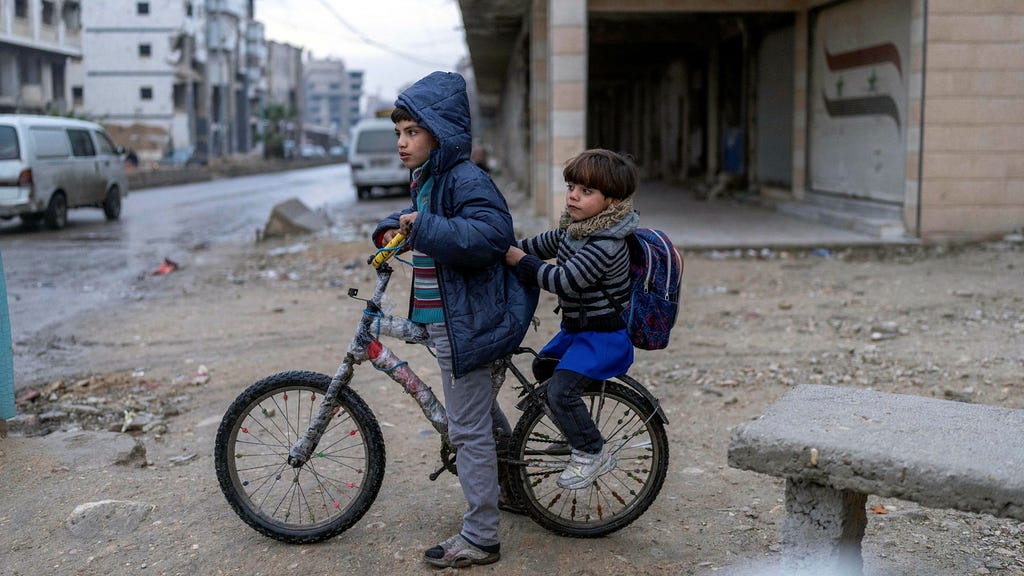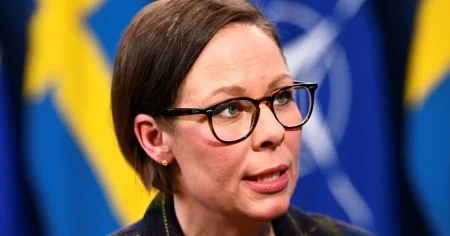The Syrian Ministry of Education recently implemented a comprehensive overhaul of the national curriculum, encompassing revisions to textbooks across various subjects. This reform, initiated under the auspices of the ruling regime, is presented as a decisive break from the educational legacy of the previous government. While the government claims these changes are intended to modernize the curriculum and align it with contemporary educational standards, the revisions have ignited controversy and sparked accusations of a creeping Islamization of education. Critics argue that the new textbooks prioritize religious instruction and incorporate a more conservative Islamic perspective into various subjects, potentially undermining secular principles and fostering a more doctrinaire approach to learning. This shift raises concerns about the future direction of Syrian education and its potential implications for the country’s social and political landscape.
The most contentious alterations involve subjects like history, social studies, and Arabic language, where critics contend that historical narratives have been reframed through a more explicitly Islamic lens. For example, the portrayal of pre-Islamic history and other civilizations has reportedly been minimized, while greater emphasis is placed on Islamic conquests and contributions. Similarly, social studies textbooks allegedly promote traditional gender roles and reinforce conservative social values, raising concerns about the potential marginalization of women and the restriction of individual liberties. In Arabic language studies, the inclusion of more religious texts and the prioritization of classical Arabic over modern dialects are seen by some as a move to promote a more religiously-infused understanding of language and culture.
The government’s justification for these revisions centers on the argument that the previous curriculum was outdated and reflected the ideological biases of the former regime. They assert that the new curriculum aims to promote national unity and instill a stronger sense of Syrian identity, drawing upon the country’s rich Islamic heritage. Furthermore, the government maintains that the changes are in line with the desires of the Syrian people and reflect their values and aspirations. They dismiss the accusations of Islamization as politically motivated and insist that the revisions promote a balanced and inclusive approach to education. However, this narrative is sharply contested by those who perceive a clear agenda to promote a specific interpretation of Islam within the education system.
The debate over the curriculum reforms has exposed deep divisions within Syrian society, reflecting the ongoing political and ideological struggles that have plagued the country for years. The changes have been welcomed by some segments of the population, particularly those who favor a more prominent role for religion in public life. They view the revisions as a corrective to what they perceived as the secularist and authoritarian tendencies of the previous regime. Conversely, the reforms have been met with apprehension and resistance by secularists, minorities, and those who fear a regression towards a more conservative and restrictive society. This polarization further complicates the already fragile social fabric of Syria and raises concerns about the potential for increased sectarian tensions.
The long-term consequences of these educational reforms are yet to be fully understood. However, critics argue that the prioritization of a particular religious perspective within the education system could have far-reaching implications for the country’s future. They warn that it could lead to a more insular and less tolerant society, potentially hindering critical thinking, intellectual inquiry, and open dialogue. Furthermore, the perceived Islamization of education could exacerbate existing social divisions and further marginalize minority groups. The promotion of traditional gender roles and conservative social values could also have a detrimental impact on women’s rights and opportunities. On the other hand, proponents of the changes argue that they will contribute to a stronger national identity and a more morally grounded society.
The international community has also expressed concern over the direction of Syrian educational reforms. Several human rights organizations and international bodies have criticized the alleged Islamization of the curriculum and its potential impact on freedom of thought and expression. They have called on the Syrian government to ensure that the education system promotes inclusivity, critical thinking, and respect for human rights. However, the Syrian government maintains that the reforms are an internal matter and rejects any external interference in its educational policies. The ongoing debate underscores the challenges facing Syria as it attempts to rebuild its education system in the aftermath of years of conflict and political upheaval. The question of how to balance religious and secular principles within education remains a contentious one, with significant implications for the country’s future. The controversy surrounding the curriculum revisions serves as a microcosm of the larger struggle over the identity and direction of Syria in a post-conflict era.














